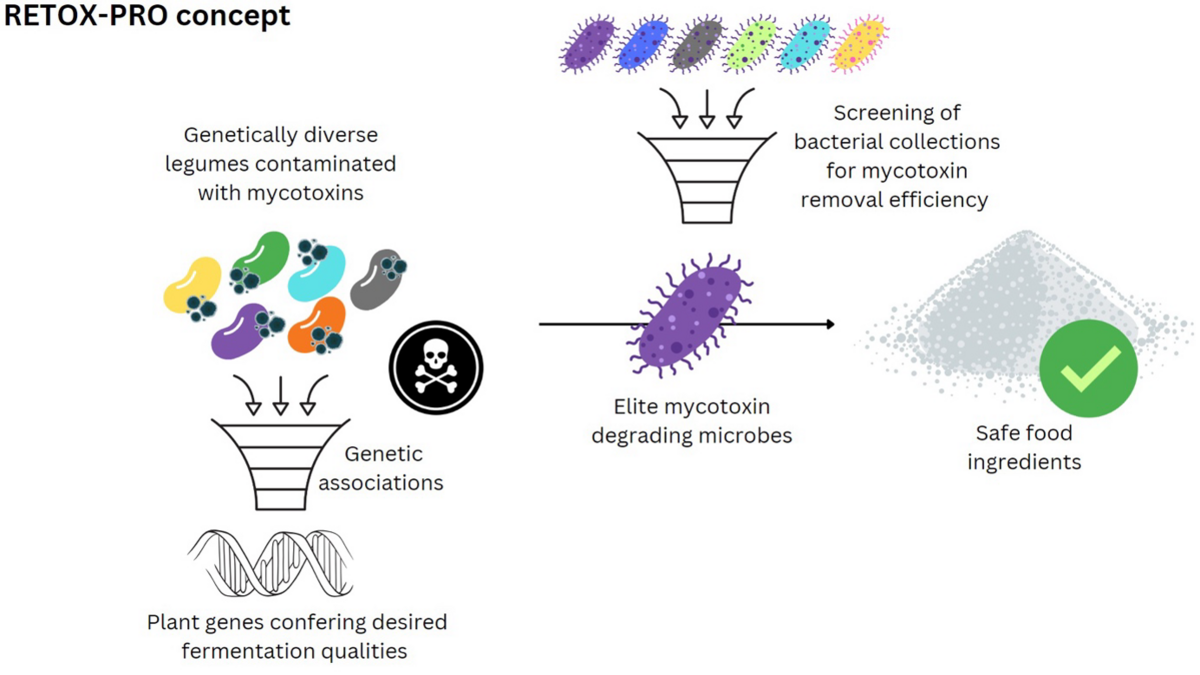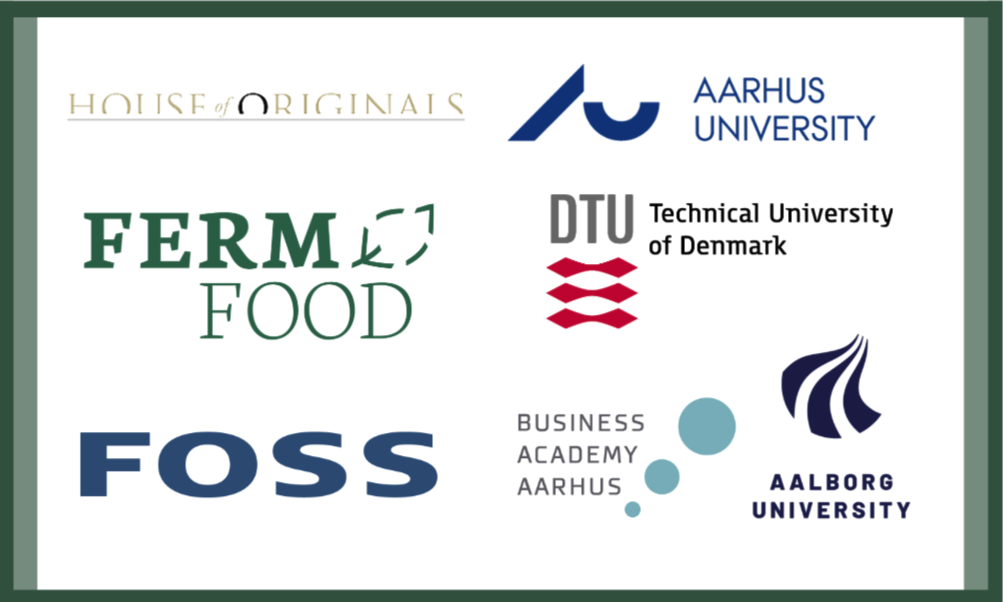RETOX-PRO
"Removal of mycotoxins by legume fermentation to improve plant protein quality"
The RETOX-PRO project focuses on improving plant-based food safety and quality through fermentation. The goal of RETOX-PRO is to deliver strains that consistently remove mycotoxins in well-defined legume genotypes during cost- and resource efficient solid state fermentation and to link plant genetics to fermentation and mycotoxin removal properties.
⌐ The project has been granted 7.402.024 DKK in funding.
⌐ The project starts on 1 May 2024 and will end on 31 April 2027.
Introducing the RETOX-PRO project
Background for the project
Certain types of molds naturally produce chemically and thermally stable toxic compounds called mycotoxins. These compounds are among the main hurdles in ensuring safe products for consumers and affect a large variety of food materials from grains to fruits. The FAO estimated that more than a quarter of the global food crop is contaminated with mycotoxins, which causes substantial direct or indirect economic losses worldwide. Mold growth and mycotoxin accumulation may occur before or after harvest. Upon ingestion, mycotoxins can cause acute symptoms of poisoning, while prolonged exposure has been linked to long-term effects on health, including cancers and immune deficiency.
Legume crops cultivated for their protein-rich grain are no exception to mycotoxin contamination. The most common toxins in legumes are aflatoxins - produced by Aspergillus sp. molds, which are some of the most potent toxins regulated at 20 parts per billion in food products. The RETOX-PRO project will improve food safety by finding microbial solutions to reduce or remove aflatoxins from fermented faba beans and other food legumes.
The activities
The RETOX-PRO project will screen a large library of microbes to identify strains that efficiently remove the mycotoxins. These strains will then be used to assess their in-substrate mycotoxin-removal activity in legume seed flour. The effects of within and between species diversity on fermentation efficiency and mycotoxin removal will be tested using faba bean and cross-species legume diversity panels, and the functional properties of the resulting fermentate will be characterized.
On the food processing and microbial side, RETOX-PRO will deliver strains that consistently remove mycotoxins in well-defined legume genotypes during cost- and resource efficient solid state fermentation. From the plant raw material perspective, RETOX-PRO will link plant genetics to fermentation and mycotoxin removal properties, identifying specific markers for these traits. This will allow plant breeders to initiate development of varieties well-suited for solid state fermentation.
The outcome
In summary, the RETOX-PRO project will generate pre-competitive data, which will be shared openly and used broadly across the plant-based food value chain. The RETOX-PRO data will serve as a basis for commercial activities in strain development, fermentation method optimization, plant-based food product development and plant breeding.


